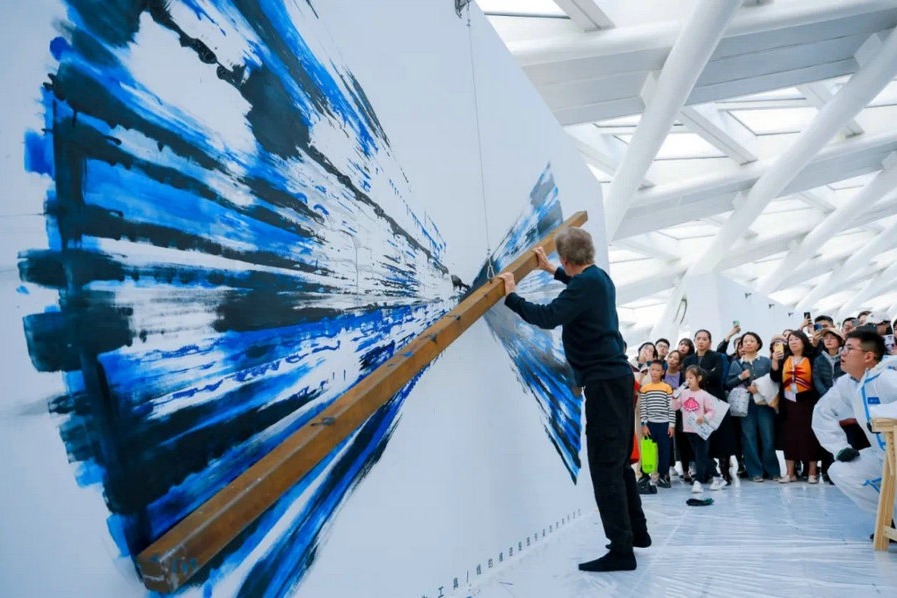Scenes from the dark days


After a warm reception, a play about the struggle for survival in the Jewish enclave of wartime Lithuania is now on the second leg of its China tour, Chen Nan reports.
When a children's choir performed the song Sleep Away to the sound of an accordion in a theater in Beijing on Thursday, the audience was transported back to the Jewish settlement of Vilnius, the capital of Lithuania, during the darkest days of the Holocaust in World War II.
The song portrays the children of murdered parents being imprisoned in ghettos of the time. With death approaching, they clung together and sang songs of hope.
One of the 12 songs in the theatrical play Ghetto was written and directed by Israeli playwright and director Joshua Sobol. The play premiered at the Haifa Theatre in Israel in 1984, and has since been performed in over 25 countries, including Germany, Britain and the United States. It has also been translated into 20 languages.
Directed by Sobol, the Chinese version of the play premiered last year and toured nationwide featuring Chinese actors. After receiving positive feedback, the play is now on the second leg of its countrywide tour running from October to March that will see it visit 13 Chinese cities.
"When I first read the diaries describing life in the ghetto of Vilnius in Lithuania during World War II, I realized that there had been a theater in the ghetto," says Sobol in Beijing.
The theater, which was established by Jews who were forced into the tiny enclave by occupying German forces, used to stage a range of shows, including operas, dance works and plays.
Sobol began to research the subject and found that many of the people involved were still alive. When he asked them what theater meant to them, they told the director that it reminded them that they were still human.
"Almost every day, people were taken away and killed. What surprised me the most was the fact that people living in the ghetto wrote songs which were so full of life and hope during those difficult times. I felt compelled to look back at the past and adapt the story into a play," Sobol says.
Since the play centers around a theater, it combines live music and dance, and is based on scores of songs and documents Sobol discovered about the Vilnius enclave.




































